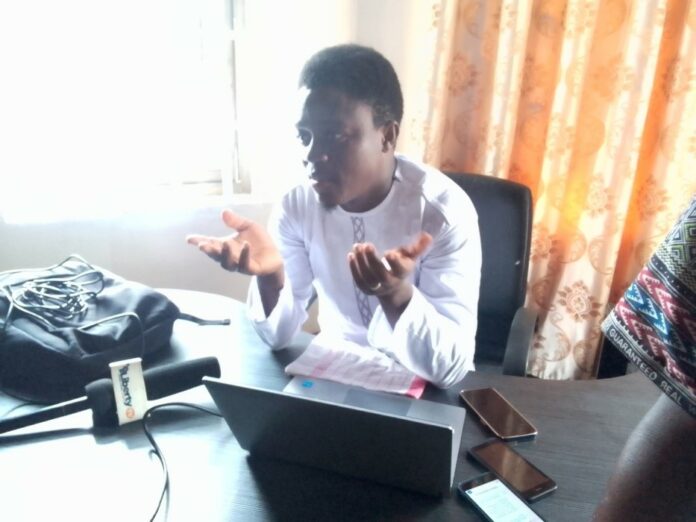By Yusufu S. Bangura
Gabriel Kpaka, Deputy Director General of the Sierra Leone Meteorological Agency (SLMet), delivered an update on the country’s weather forecast during the launch of the 2024 National Seasonal Outlook on Friday, May 3rd.
According to Kpaka, Sierra Leone can anticipate below-average rainfall for the months of June, July, and August, signifying a deficit compared to data from the past 30 years.
Speaking at the event held at their headquarters on 18 Charlotte Street in Freetown, Kpaka emphasized SLMet’s role in providing crucial advice to the government on meteorology, climatology, climate change, and related matters.
He underscored the agency’s mission to safeguard lives and properties through accurate weather forecasting and analysis.
The launch aimed to provide detailed insights into the expected weather patterns for the 2024 rainy season, empowering journalists with the necessary knowledge to interpret and disseminate weather forecasts effectively.
Kpaka highlighted the importance of preparing Sierra Leoneans and institutions in advance to mitigate the risks associated with seasonal disasters.
Utilizing various weather monitoring stations across the country, including those dedicated to agriculture, marine, aviation, and manual observations, SLMet employs advanced tools and data analysis techniques to generate seasonal outlooks.
Kpaka emphasized the use of climate prediction tools and historical data spanning from 1993 to 2023 to develop reliable forecasts.
In terms of rainfall expectations, Kpaka outlined projected cumulative rainfall figures for different regions, with Kabala, Freetown, and others anticipating varying levels of precipitation during June, July, and August.
He highlighted the importance of providing farmers with accurate planting and harvesting information to optimize agricultural practices.
Additionally, Kpaka warned of potential weather-related risks such as heavy winds, thunderstorms, flooding, and pest outbreaks during the rainy season. He stressed the need for robust monitoring and response mechanisms for flood and disaster risk reduction, urging citizens to avoid occupying flood-prone areas and advocating for government support in enhancing farmers’ access to improved agricultural varieties.
Finally, Kpaka advised the public to refrain from drinking rainwater during the initial week of rainfall due to potential contamination, emphasizing the importance of awareness and preparedness in the face of climate change’s widespread impact on the country.




